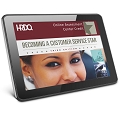Self-Assessments (Online and paper-based)

Employee Assessment Tools & Tests
WHICH EMPLOYMENT ASSESSMENTS ARE MOST IMPORTANT FOR HIRING?
HRDQ Assessments are a vital tool for knowing where your learners are right now. With that knowledge they now have a roadmap to improve their personal and professional lives.. We offer assessment tools for virtually every area of soft-skills training with most available in both online and print formats.
Identify all the necessary strengths and weaknesses of current or prospective employees with ease.
Evaluate skill level and behaviour with theory-driven learning instruments that provide the opportunity to gain self-awareness. Whether you are administering staff assessment, employee skills assessment or need leadership assessment tools, we offer both paper-based and online assessments for skills development on a range of soft-skills topics, including change management, communication, leadership, negotiating, and more.
Paper-based assessments allow participants to evaluate their skills on a selected topic, and take away a valuable tool to refer to while growing that skill.
CLICK HERE to view our range of paper-based assessments in the various soft-skills categories
The online assessment range offer a streamlined solution that will transform the way you prepare for and deliver training, whether your audience is 20 or 2,000.
The HRDQ Assessment Centre is the easy and efficient way to administer and complete online assessments from a simple streamlined interface. Our employee assessment tools are designed to be accessible for all skill levels to operate, and we're always available to answer any questions that may arise throughout the process.
Online Assessments
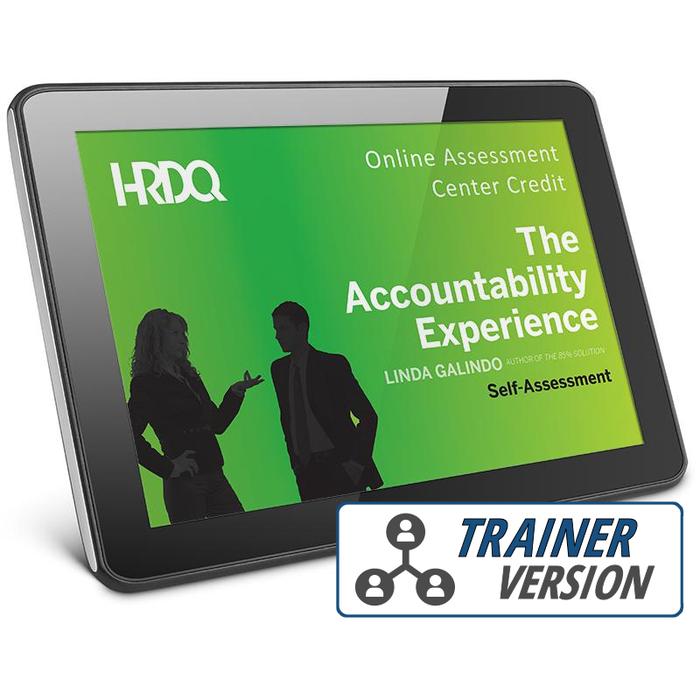 Accountability Experience, The (Accountability)
Accountability Experience, The (Accountability)
Organizations that embrace accountability, retention, and morale are more likely to succeed than those that do not. A combination self assessment and classroom workshop, The Accountability Experience is a comprehensive learning solution that gives individuals useful tools and strategies to help strengthen their commitment to accountability.
Becoming a Customer Service Star (Customer Service)
Everyone has a favourite customer service story, but few people can identify the specific behaviours that will result in outstanding service. With Becoming a Customer Service Star, employees and managers evaluate their behaviour in 5 critical service areas, examine their attitudes about service, and learn ways to boost their customer service performance.
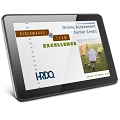 Benchmarks of Team Excellence (Team Development)
Benchmarks of Team Excellence (Team Development)
Get the tool that measures a higher level of team functioning. Benchmarks of Team Excellence reveals important information about the experience and attitudes of those who know the team best - the team members.
Campbell Leadership Descriptor (Leadership Skills)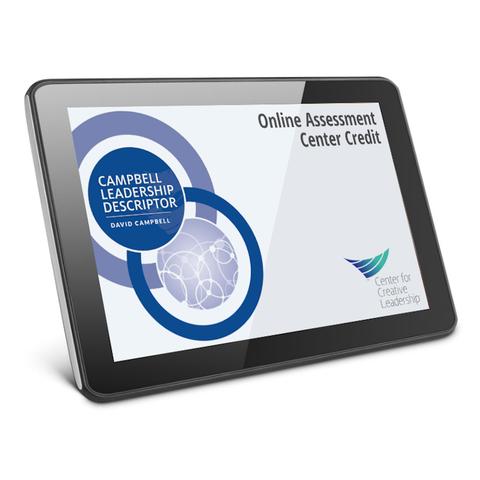
Designed specifically for use in situations where a comprehensive analysis of leadership characteristics is useful, the Campbell Leadership Descriptor helps individuals identify their strengths and weaknesses in nine major leadership attributes.
 Change Reaction Instrument (Change Management)
Change Reaction Instrument (Change Management)
Understanding one’s own reactions to change is the first step in dealing with it. An excellent starting point, Change Reaction is an effective learning tool for understanding personal reaction to change. The 24-item instrument helps individuals learn about their typical reaction to change – and identify ways to manage it effectively.
Coaching Skills Inventory (Coaching Skills)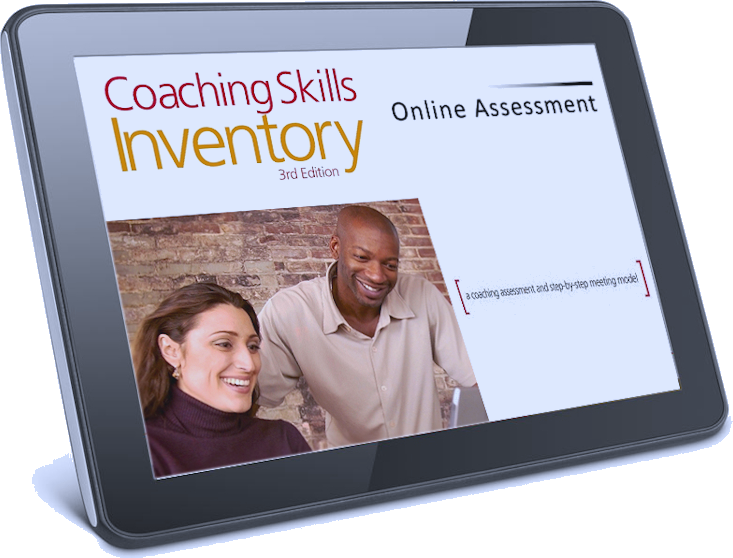
The Coaching Skills Inventory offers a logical, 7-step formula for conducting coaching meetings that are based on mutual trust and respect.
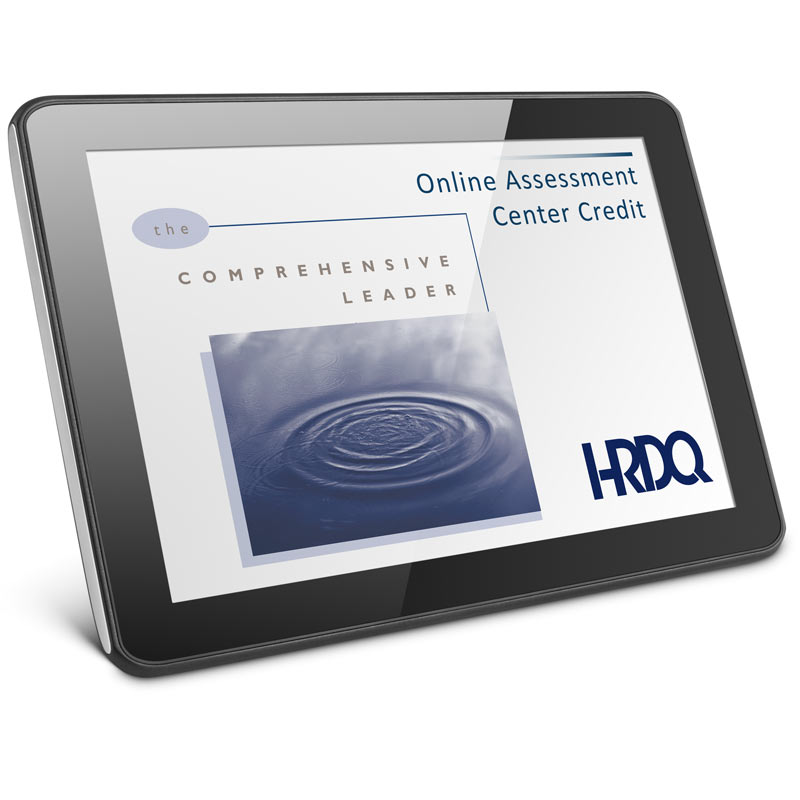 Comprehensive Leader, The (Leadership Skills)
Comprehensive Leader, The (Leadership Skills)
The Comprehensive Leader will help participants to identify their strengths in the areas of strategic and visionary leadership and design a development plan to enhance their personal performance.
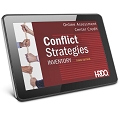 Conflict Strategies Inventory (Conflict Resolution)
Conflict Strategies Inventory (Conflict Resolution)
Conflict Strategies Inventory is a soft-skills training program on conflict management strategies, based on the Blake and Mouton Styles Grid. The assessment identifies an individual's preferred conflict strategy, examines each strategy, and enables individuals to develop an action plan to put learning into action.
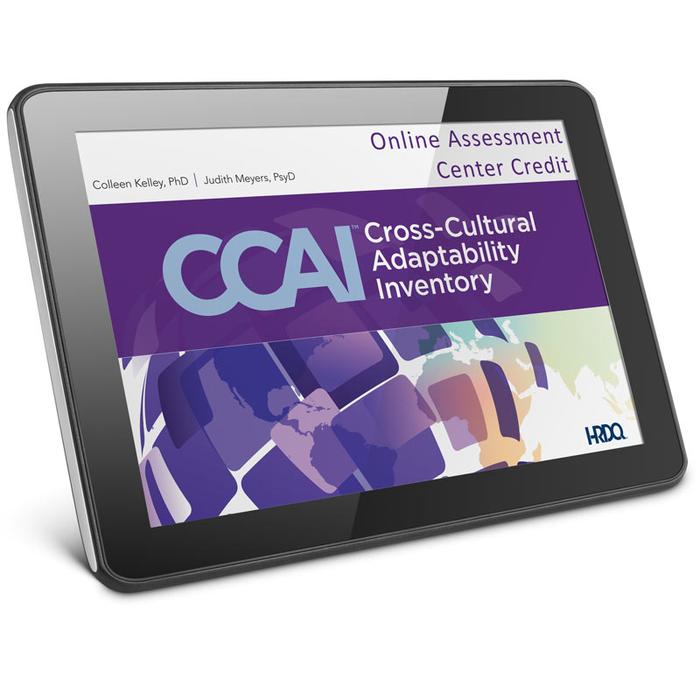 Cross Cultural Adaptability Inventory (CCAI) (Culture Awareness)
Cross Cultural Adaptability Inventory (CCAI) (Culture Awareness)
The Cross Cultural Adaptability Inventory (CCAI) workshop is a powerful experience that helps participants identify their personal areas of low cultural understanding and provides examples of ways to improve them.
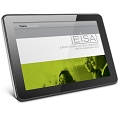 Emotional Intelligence Skills Assessment (EiSA) (Emotional Intelligence)
Emotional Intelligence Skills Assessment (EiSA) (Emotional Intelligence)
When people fail in the workplace, it’s usually caused by a lack of Emotional Intelligence (EI). EI is the kind of “smarts” that enable us to make sound decisions, build relationships and influence others. EiSA is a self-assessment, 360 assessment and training workshop that first measures EI and social intelligence functioning and then helps individuals improve their skills.
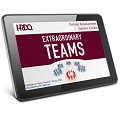 Extraordinary Teams Inventory (Team Development)
Extraordinary Teams Inventory (Team Development)
Extraordinary Teams is a team building assessment and soft-skills training programme that measures five indicators of extraordinary teams. Based on the book Extraordinary Groups, this team building training package includes corporate training materials to help teams and team members build the effective teamwork skills that improve performance using an online assessment, participant workbook, and training workshop.
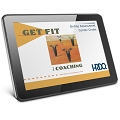 Get Fit for Coaching (Coaching Skills)
Get Fit for Coaching (Coaching Skills)
Get Fit for Coaching identifies and assesses areas of strength and improvement based on 5 critical skills found in research and literature: Building Rapport, Observing and Analyzing, Questioning and Listening, Providing Feedback, and Facilitating Learning.
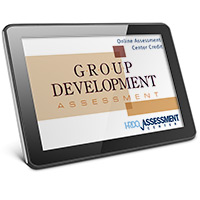 Group Development Assessment (Team Development)
Group Development Assessment (Team Development)
The Group Development Assessment gives groups the opportunity to evaluate how they are currently functioning in the two major dimensions of behaviour - task and process. By combining each member’s inventory scores into a group profile, members get a clear, comprehensive picture of their development.
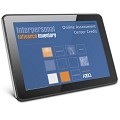 Interpersonal Influence Inventory (Communication Skills)
Interpersonal Influence Inventory (Communication Skills)
Do the people in your organization know how they "come across" to others? Help them to become more effective communicators, and show them how to use their influence wisely with the Interpersonal Influence Inventory.
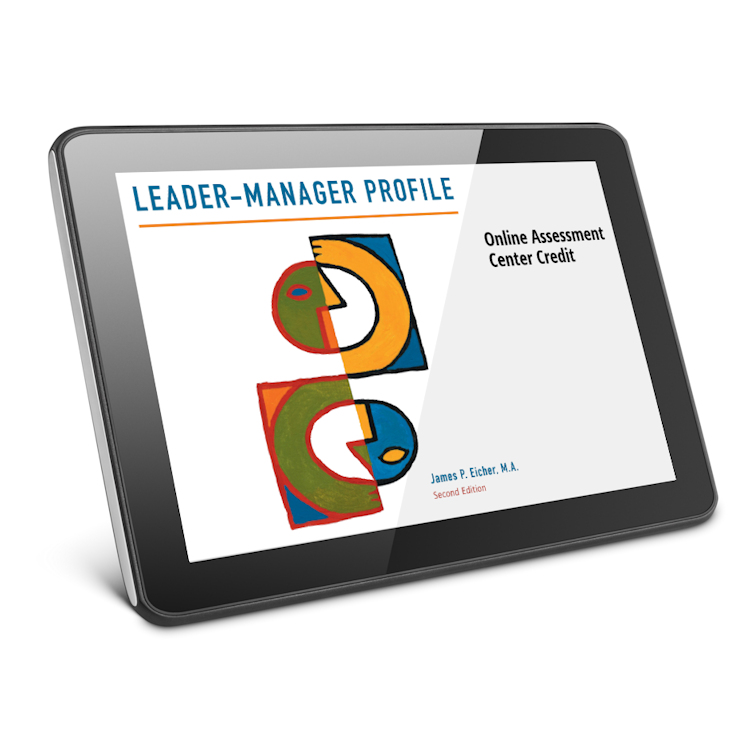 Leader-Manager Profile (Leadership Skills)
Leader-Manager Profile (Leadership Skills)
The Leader-Manager Profile enables both your managers and your organization to achieve success. This 36-item assessment illustrates for managers how their competence as both a manager and a leader can contribute to meeting the demands of the marketplace.
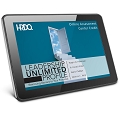 Leadership Unlimited Profile (Leadership Skills)
Leadership Unlimited Profile (Leadership Skills)
Research studies show that 40% of new leaders will fail within the first 18 months. The good news is that leadership failure can be predicted - and even prevented - when managers are given the right resources. The Leadership Unlimited Profile is an eye-opening training package that serves as an “early warning” leadership development tool. It quickly identifies trouble spots and builds the skill sets leaders and managers need to stay on track, excel to the next level, and take charge of their careers.
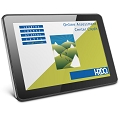 Leading Change at Every Level (Change Management)
Leading Change at Every Level (Change Management)
In decades past, change leadership used to fall squarely on the shoulders of the executive echelon. But in today’s empowered organizations, the responsibility of championing change cascades throughout the organization, regardless of authority or position. Leading Change at Every Level is comprehensive self-assessment and classroom workshop that measures skill level and develops the five behaviours of effective change leaders. It’s the training toolkit every trainer needs to build competent change leaders from the top to bottom.
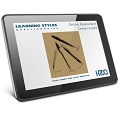 Learning Styles Questionnaire (Learning Styles)
Learning Styles Questionnaire (Learning Styles)
Help your participants to become more efficient and focused learners with the Learning Styles Questionnaire & Capitalizing on Learning Styles Workbook. Two in-depth instruments that help respondents identify a preference for one of four learning styles: Activist, Reflector, Theorist, or Pragmatist.
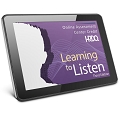 Learning to Listen (Communication Skills)
Learning to Listen (Communication Skills)
💢💻 The ONLINE VERSION now includes a FREE half-hour eLearning course for self study learning and reinforcement!
Learning to Listen is a communication assessment and soft-skills training programme that measures both visible and invisible listening skills. This listening skills test helps individuals to develop their strengths and improve upon their weaknesses so they are better equipped to handle customer complaints, negotiate contracts, manage teams, and more. Learning to Listen is a great foundation for any communication skills training programme.
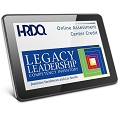 Legacy Leadership Competency Inventory (Leadership Skills)
Legacy Leadership Competency Inventory (Leadership Skills)
The Legacy Leadership Competency Inventory is about building the foundation for real-time legacy in today's organizations. This combination assessment, workbook, and one-day workshop offers a proven process for bringing out individuals' best, developing other leaders in the organization, establishing leadership culture, and positively impacting the bottom line.
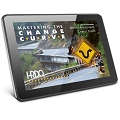 Mastering the Change Curve (Change Management)
Mastering the Change Curve (Change Management)
Proactively managing organizational change can result in a corporate culture that is optimistic - fuelled by empowered leadership and employees who feel valued and secure. Mastering the Change Curve will train your team to identify and understand the four phases of change: Denial, Resistance, Exploration and Commitment and provide skills to help each individual productively navigate through the process.
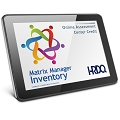 Matrix Manager Inventory (Team Development)
Matrix Manager Inventory (Team Development)
With cross-functional, multi-functional, and virtual teams, today’s organizations are more complex than ever—and that means managers need a refined skill set to match. The Matrix Manager Inventory is a timely new assessment and training workshop that helps both new and seasoned managers to develop the capabilities and versatility they need to succeed in today’s interconnected and collaborative world.
 Negotiating Style Profile (Negotiation Skills)
Negotiating Style Profile (Negotiation Skills)
There’s more to negotiating than the outcome alone. Building productive relationships is equally important. Skilled negotiators know this and it’s what sets them apart from the rest. And whether people are striving to hit their monthly sales quota, campaigning for a deadline extension, or pitching ideas to a team, the same principles apply. A trainer favourite for more than 30 years, the Negotiating Style Profile is a combination self-assessment and classroom workshop that offers a simple framework for determining personal negotiating style and the likely effect it has on negotiations.
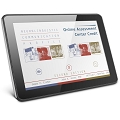 Neurolinguistic Communication Profile (Communication Skills)
Neurolinguistic Communication Profile (Communication Skills)
Why do you hit it off with some people but not others? The answer is rapport. It’s what leads to clear communication, fewer conflicts, and better teamwork. The NCP is an innovative and very useful assessment that helps individuals identify their communication preferences and then offers practical ways to improve rapport with just about anyone.
Personality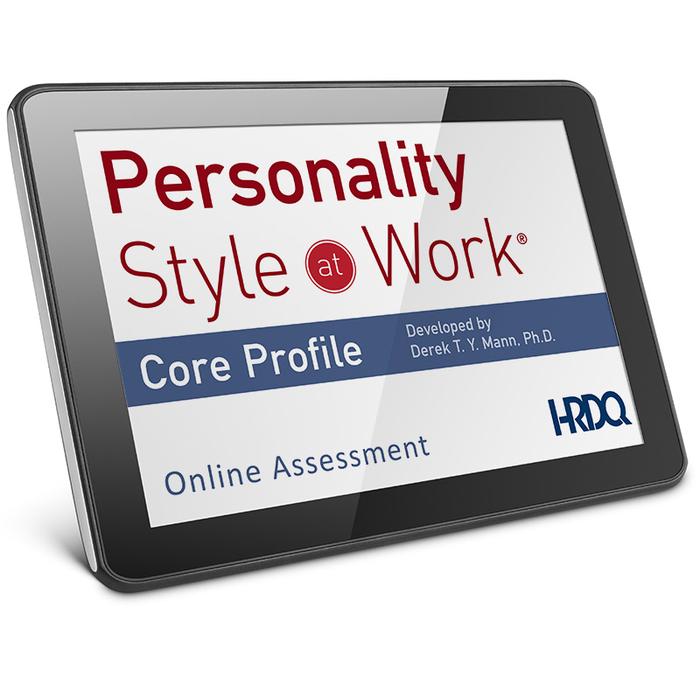 Style at Work (PSAW) (Personality Styles)
Style at Work (PSAW) (Personality Styles)
Personality Style at Work (PSAW) is the latest and most statistically accurate assessment. It's a simple, but highly effective tool that measures both the core behaviours that make-up an individual's style and the lens through which they choose to navigate their world.
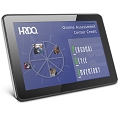 Personal Style Inventory (Personality Styles)
Personal Style Inventory (Personality Styles)
Personal Style Inventory makes identifying and understanding personal style easy. Based on Carl Jung's theory of psychological types, PSI has helped thousands of people answer the question, "Why do I act the way I do?"
Presentation Skills Profile (Communication Skills)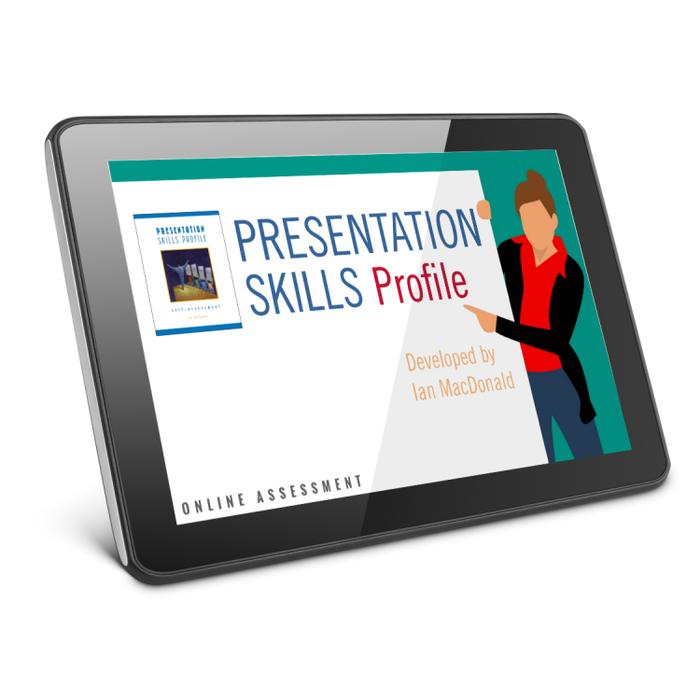
Presentation Skills Profile is designed for use by anyone who is called upon to prepare and deliver presentations. Those who require their audience to agree with a conclusion and/or course of action will gain particular benefit by using the profile.
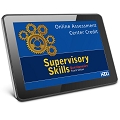 Supervisory Skills Questionnaire (Supervisory Skills)
Supervisory Skills Questionnaire (Supervisory Skills)
Supervisors are the vital link between your organization and its work groups. Get your supervisors in gear and ready for performance with the Supervisory Skills Questionnaire. This combination assessment, peer feedback, workbook, and half-day training programme equips supervisors with skills they need to tackle the everyday challenges they face in the workplace.
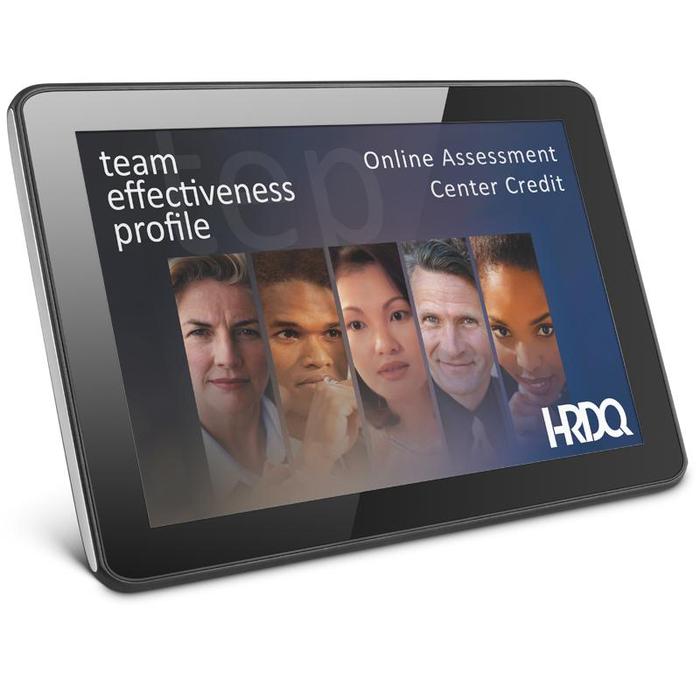 Team Effectiveness Profile (TEP) (Team Development)
Team Effectiveness Profile (TEP) (Team Development)
For more than 15 years, the Team Effectiveness Profile has helped teams eliminate or reduce blockages in the 5 vital areas of team activity: Mission, Vision, and Goals; Team Roles; Operating Processes; Interpersonal Relationships; Interteam Relationships.
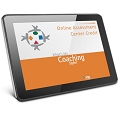 What's My Coaching Style? (Personality Styles / Coaching Skills)
What's My Coaching Style? (Personality Styles / Coaching Skills)
💢💻 The ONLINE VERSION now includes a FREE half-hour eLearning course for self-study learning and reinforcement!
Understanding personal style is the first step to developing successful coaching relationships. By responding to the 18-item What's My Coaching Style? inventory and receiving feedback from coachees, participants identify their personal style and build an understanding of the people they coach.
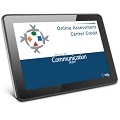 What's My Communication Style? (Personality Styles / Communication Skills)
What's My Communication Style? (Personality Styles / Communication Skills)
💢💻 The ONLINE VERSION now includes a FREE half-hour eLearning course for self-study learning and reinforcement!
Uncover preferred styles of verbal and nonverbal communication with the fast and fun What's My Communication Style?. Using a 24-item inventory, participants will learn their preference for one of 4 communication styles, recognize the various facets of communication, and learn how to use their own style to enhance communication.
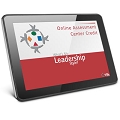 What's My Leadership Style? (Personality Styles / Leadership Skills)
What's My Leadership Style? (Personality Styles / Leadership Skills)
💢💻 The ONLINE VERSION now includes a FREE half-hour eLearning course for self-study learning and reinforcement!
What's My Leadership Style helps participants learn their preference for one of four styles and find out how to adapt each style to different situations. Ideal for training anyone who needs to influence others towards achieving a goal.
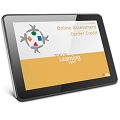 What's My Learning Style? (Personality Styles / Learning Styles)
What's My Learning Style? (Personality Styles / Learning Styles)
Discover how to approach all types of learning in a comfortable way with What's My Learning Style? Participants identify a preference for one of 4 styles. The instrument presents both positive and negative aspects of each style, enabling individuals to use this knowledge to create greater success in learning.
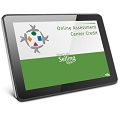 What's My Selling Style? (Personality Styles / Selling Skills)
What's My Selling Style? (Personality Styles / Selling Skills)
What's My Selling Style? helps salespeople analyze how they typically behave in a sales situation, identify their customers' styles, and learn how to flex their own style to match their customer. With increased awareness and flexibility, salespeople can use style to maximize sales and rise above the competition.
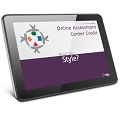 What's My Style? (Personality Styles)
What's My Style? (Personality Styles)
By responding to a simple 18-item inventory, participants will learn their preference for one of four basic behavioural styles, how a preferred style affects behaviour, and how to capitalize on strengths/combat weaknesses to create greater success in their lives.
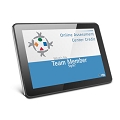 What's My Team Member Style? (Personality Styles / Team Development)
What's My Team Member Style? (Personality Styles / Team Development)
The 18-item assessment helps individuals evaluate how they typically behave on a team and the results reveal their preference for one of 4 team member styles. With increased awareness, they are able to appreciate other team members' contributions and address differences proactively.
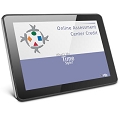 What's My Time Style? (Personality Styles / Time Management)
What's My Time Style? (Personality Styles / Time Management)
While traditional time-management systems take a one-size-fits-all approach, What's My Time Style? helps people identify their own personal time style and learn how to make that style work for them rather than against them.
